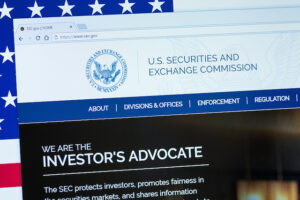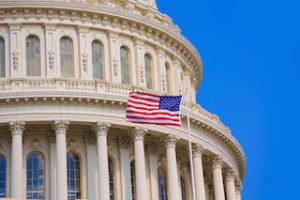Insurance industry advocacy groups are encouraging President Trump to sign the Economic Growth, Regulatory Relief, and Consumer Protection Act (S.2155) into law, which was passed Tuesday by the House of Representatives, and has previously been adopted by the Senate. The bill contains provisions of the Senior Safe Act (S. 223/H.R. 3758), which protects older investors from exploitation.
The Insured Retirement Institute (IRI) and the American Council of Life Insurers (ACLI) each released statements supporting the bill on May 22.
“The Senior Safe Act provides financial professionals with the tools necessary to combat the financial exploitation of our most vulnerable Americans,” said Lee Covington, IRI’s senior vice president and general counsel. “Through increased education and awareness of the signs and symptoms of exploitation, the Senior Safe Act will empower and encourage financial professionals to report suspected cases of exploitation to law enforcement and other appropriate governmental agencies, thereby helping to prevent older investors from becoming victims.”
Under the concept that financial advisors are a logical first line of defense in spotting signs of elder financial abuse, the Senior Safe Act would protect advisors from liability and violations of privacy if they alert authorities about potential fraud. It also calls on the financial services industry to train staff so they can better spot elder abuse. The idea is to create a standardized training program that would be implemented companywide in order to earn the liability protection.
“The Senior Safe Act will help protect America’s seniors from financial exploitation. It is extremely beneficial public policy because it helps protect seniors,” said ACLI President & CEO Dirk Kempthorne. “It facilitates improved communication between insurance producers, life insurance companies and regulators in the event of suspected financial exploitation of senior citizens. By encouraging the reporting of suspected fraud, the Senior Safe Act improves the ability of companies to work with regulators to protect seniors from losing their retirement savings.”
 Both ACLI and IRI thanked Reps. Kyrsten Sinema (D-Ariz.) and Bruce Poliquin (R-Maine) and Sens. Susan Collins (R-Maine) and Claire McCaskill (D-Mo.) for their strong leadership on the bipartisan legislation to address a serious problem facing America’s seniors.
Both ACLI and IRI thanked Reps. Kyrsten Sinema (D-Ariz.) and Bruce Poliquin (R-Maine) and Sens. Susan Collins (R-Maine) and Claire McCaskill (D-Mo.) for their strong leadership on the bipartisan legislation to address a serious problem facing America’s seniors.
The bill is based on Maine’s Senior$afe program, which is a collaborative effort between state regulators, financial firms and legal organizations to educate banking and credit union workers on how to spot and help stop elder financial abuse. The program has resulted in hundreds of Maine financial services professionals being trained on identifying the signs of elder financial abuse.
NAIFA has also worked closely with lawmakers on Capitol Hill to advance this senior protection legislation and ensure that the provisions found within it would allow advisors to work in their clients’ interests, while shielding advisors who act in good faith and with reasonable care from liability. NAIFA also successfully argued that the legislation should not make reporting mandatory for advisors.
Millions of older Americans fall victim to financial exploitation, costing an estimated $2.9 billion per year according to a MetLife study. A separate study by Allianz found that senior fraud victims lost an average of $30,000 each, and 10% lost $100,000 or more.
The Allianz study also found that seniors who regularly speak about their finances with trusted third parties, including financial professionals, are significantly less likely to be fraud victims, which is why the Senior Safe Act and similar legislation in the states is so important.
Protecting older investors against financial exploitation and educating financial services and law enforcement professionals to recognize financial exploitation is a stated top priority for IRI. Building on its past work to provide resources to combat the financial exploitation of senior citizens, IRI is undertaking a multi-year initiative to raise the visibility of this issue through programs for financial services and law enforcement professionals, development of webinars, and other resources for financial advisors – including materials they can share with their clients – and an awareness campaign to keep this issue top of mind among all Americans.
International Insurance Capital Standards Accountability Act
ACLI also announced its support for the International Insurance Capital Standards Accountability Act on May 22.
The International Insurance Capital Standards Accountability Act of 2017 would establish new transparency and reporting requirements for the Department of the Treasury and Federal Reserve Board in connection with their participation in international forums.
“It would increase transparency and accountability to the international insurance capital standards process,” said Governor Kempthorne. “Due to the importance of the work being done by the International Association of Insurance Supervisors and the Financial Stability Board, more stakeholder input is necessary than ever before.
“We believe this bill would ensure that the Treasury, Federal Reserve, and state insurance regulators have a seat at the table to influence the international process and protect U.S. competitiveness. ACLI sincerely thanks Sens. Dean Heller (R-Nev.) and Jon Tester (D-Mont.), the original sponsors of the bipartisan bill, for their leadership on this issue.”














Great work for senior citizens.